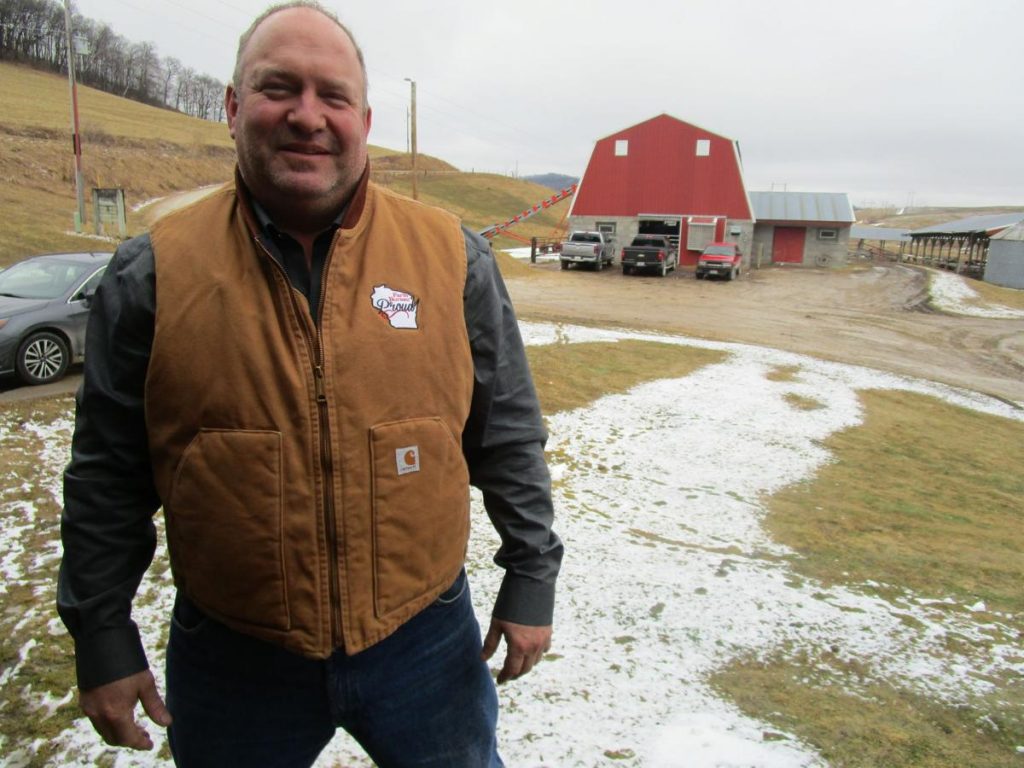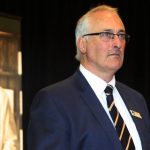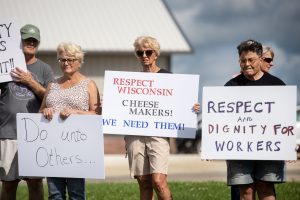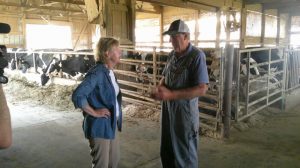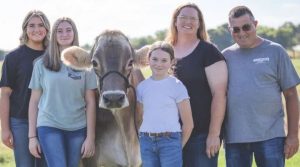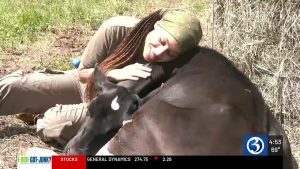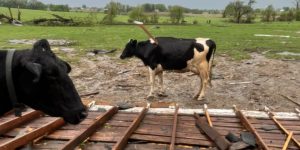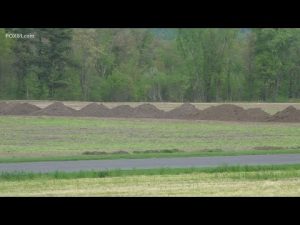
“I’m hoping that we can make a difference,” said rural Independence dairy farmer Joe Bragger, who was elected president by the WFBF board on Dec. 9. He was first elected to the state board in 2010 to represent District 4, which includes La Crosse, Buffalo, Trempealeau, Jackson, Monroe and Eau Claire counties, and continues to hold that post as well.
“Hopefully we can bring people together around the issues,” Bragger said in an interview at his Buffalo County farm. “There is division about these issues and I want to be able to create a platform where we can have good discussion, really debate some of the tough questions, and then come out with something in the end that will work for us.”
Bragger noted that at their annual meeting in December, WFBF delegates voted to support research and development of a dairy growth management system and other systems that provide increased dairy industry stability and producer profitability.
Among other things, they also voted to support finding approaches to reducing risk for the dairy industry, and to support revising the Federal Milk Marketing Orders, which are intended to ensure that dairy farmers receive a reasonable minimum price for their milk and that consumers have an adequate supply of milk.
The outlook for farmers for 2020 has dimmed in recent weeks as commodity prices have declined with uncertainty that’s increased with the spread of coronavirus around the world.
“It’s been a rough four to five years” for farmers, the 53-year-old Bragger said. “And the optimism that came in toward the end of (2019) has somewhat tapered off. A lot of the commodities are dropping quite a bit.
“If this doesn’t turn around, it could be another tough year,” Bragger said.
Bragger farms with his wife, Noel, his brother Dan Bragger and their employees. Bragger Family Dairy has about 360 dairy cows, grows 1,400 acres of crops and also raises pullets.
The family operation raises crops for feed for its livestock, and also sells corn and soybeans as cash crops.
Bragger also likes to experiment with new crops, such as industrial hemp, canola, flax and barley. This year, he said, “We’ll hit hemp again and we may try some spring wheat for a different market.”
Bragger hopes for more normal weather this year, after two very wet years that have had a negative effect on crop production.
“Normal rainfall for us is about 31 inches,” he said. “We were approaching 48 and 52 inches of rain the last couple of years. That’s a significant amount of water to deal with.” He added that “Our water tables are pretty full around here.”
Water can be seen seeping from hills on parts of the dairy farm.
Hills are nothing new for the Bragger family.
Bragger’s parents came to the United States from Switzerland and started their family farm in the late 1960s. The terrain reminded them of Switzerland, and Bragger likes to say he wishes they had come from the Ukraine so the farm would be flatter and less challenging to farm.
Bragger was 21 when his father died in a tractor accident; the tractor tipped over.
Bragger and his family’s farm received the 2011 Wisconsin Leopold Conservation Award for their land ethic and voluntary conservation efforts.
Named after conservationist Aldo Leopold, the award recognizes those who inspire other landowners by example and help the public understand the role that private landowners play in conservation.
In his new post as state Farm Bureau president, Bragger is spending much more time on the road, traveling to Madison and many other locations around the state. And when he’s home, he’s often on the telephone dealing with farm issues.
“That’s why I’m lucky that I’ve got a good team here,” Bragger said of his family’s farming operation.
His more hectic life hasn’t cost him his sense of humor.
“I think they just got rid of the slacker,” Bragger joked, when asked whether his family has had to hire more employees because of his election as state Farm Bureau president.
